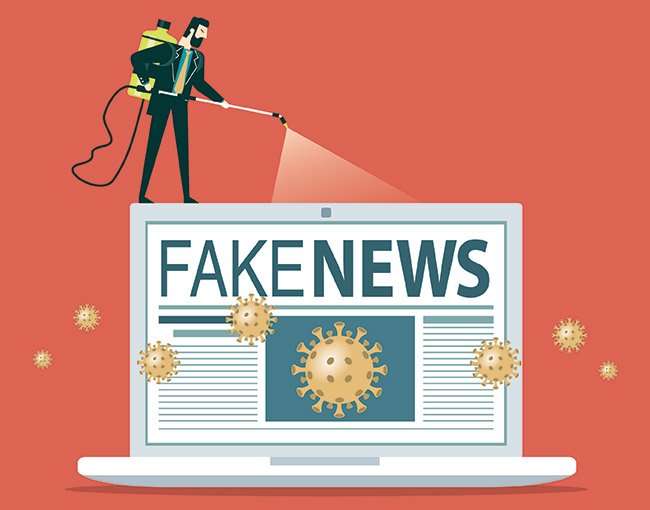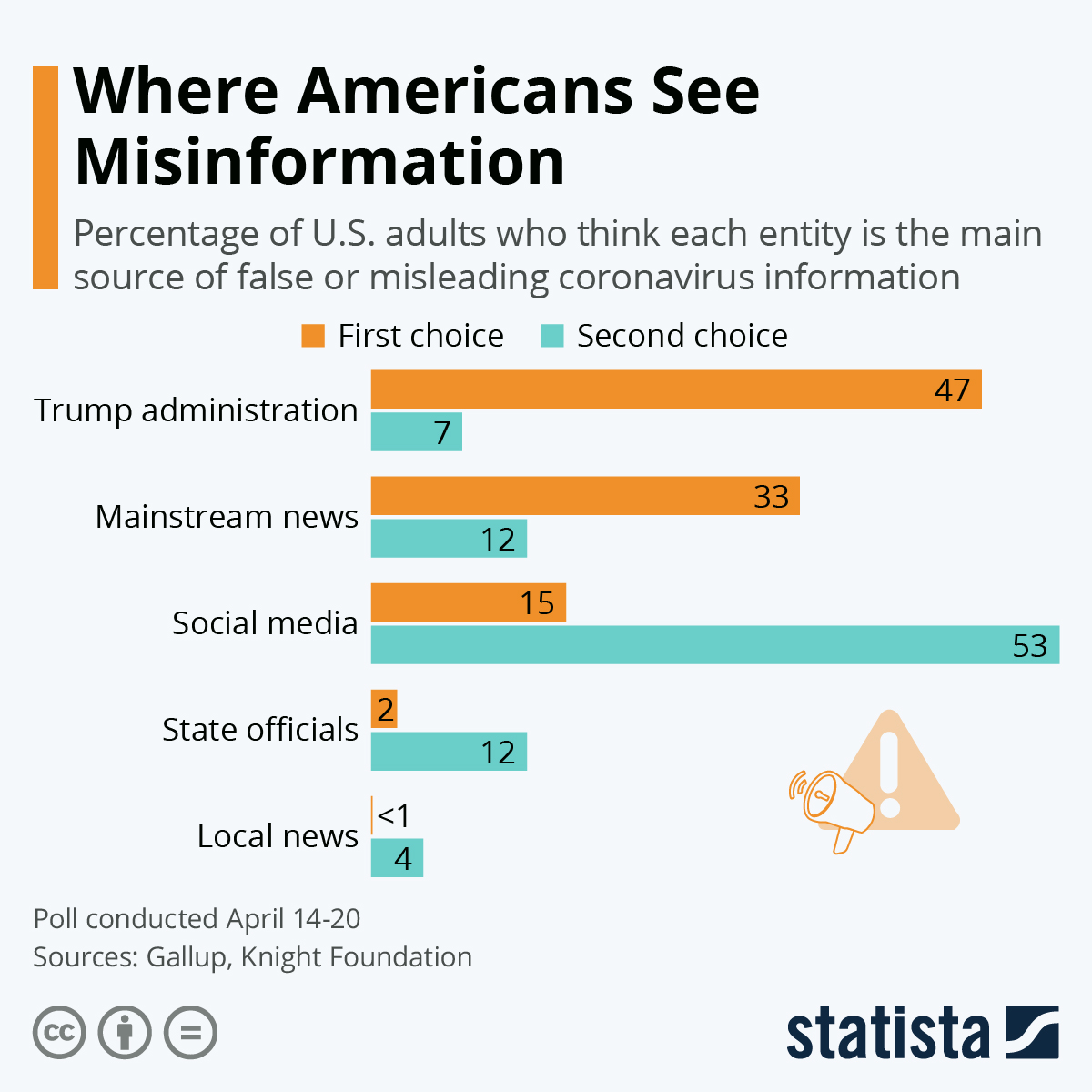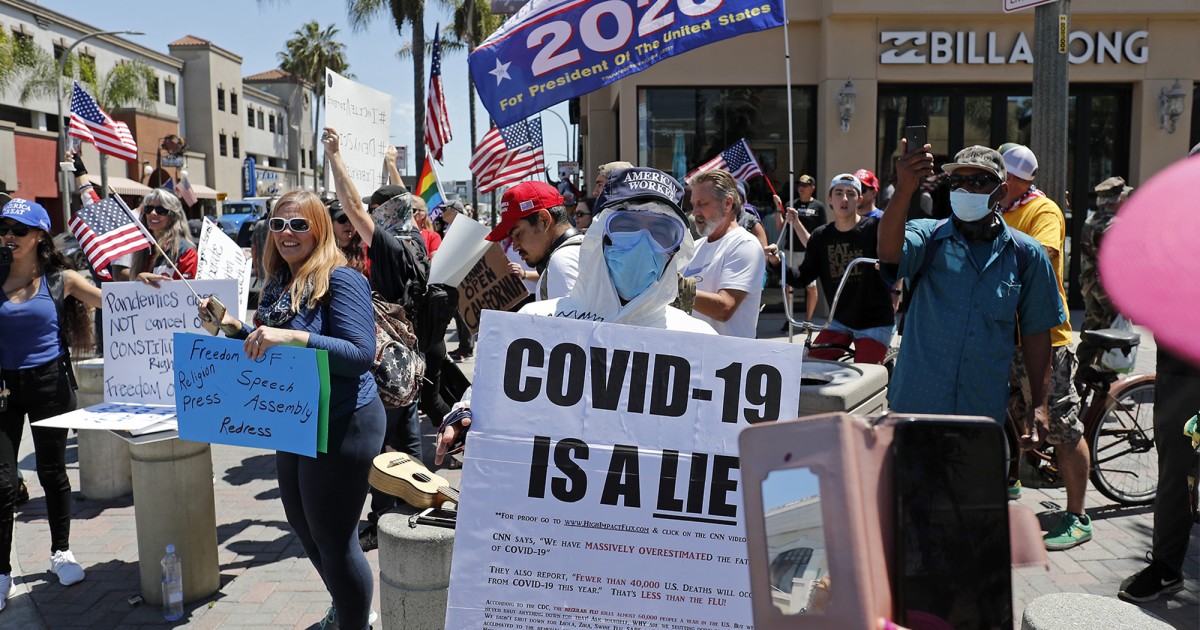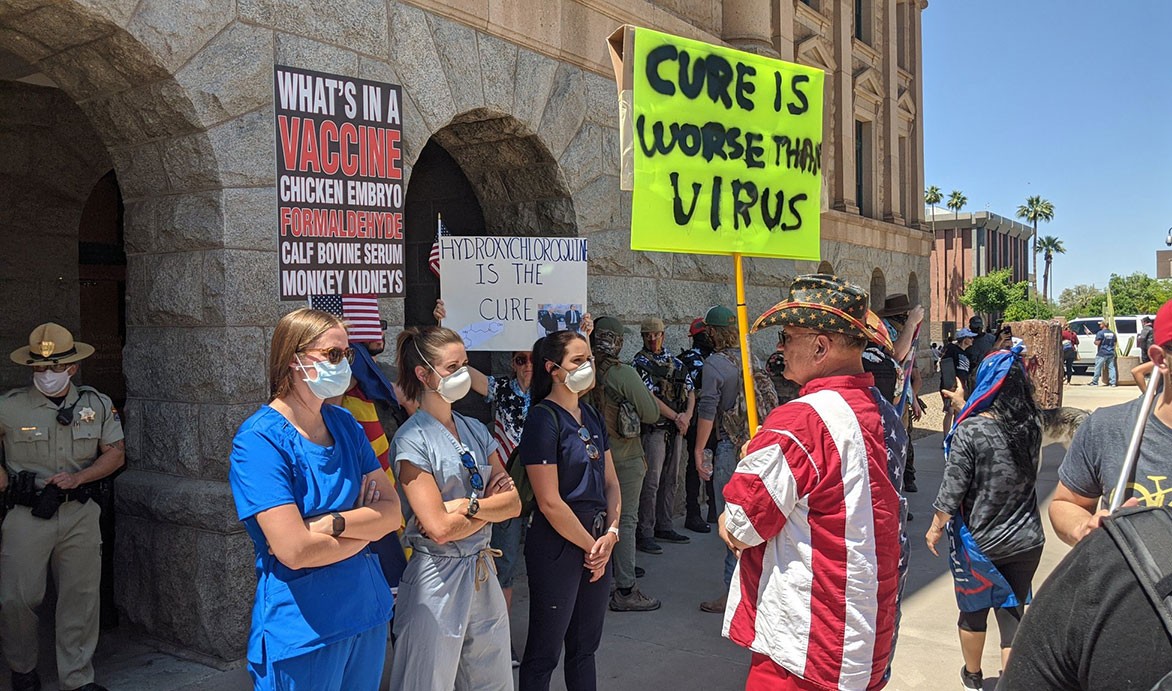Coronavirus misinformation is mainly spread through social media. Social media makes it easier for people to access and manipulate videos to spread their false information. When misinformation grows, it can become deadly for those who believe it. Some who share these myths can be misguided, but there are others who share it for profit.

Misinformation is spreading faster now than in past pandemics because of social media. Apps like Instagram, Twitter, and Facebook are immensely popular and have millions of users, making it extremely quick for false information to spread. Not everyone knows to not believe everything on social media and onee post can be seen by millions of people. Those people might believe it and can share it to their friends and family, who can also share it to their friends and family.

Some examples of coronavirus misinformation are that making drinking a solution of sodium chlorite, and citric acid can prevent you from getting the virus, that pepper can cure the coronavirus and that thermal scanners can detect COVID-19. Scientists are tying to stop the spread of misinformation because some false claims can actually make it easier to contract COVID-19. Drinking bleach or disinfectants can weaken your immune system, making you more likely to get sick.


People spread misinformation protesting against the virus, calling it a lie and not wanting a vaccine.
There are many ways to spot misinformation, including looking out for suspicious sources, bad language, emotional triggers, and false social media accounts. If information on the coronavirus seems overshared or suspicious you should fact checking is always a good idea.
